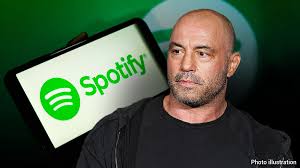Controversial podcaster Joe Rogan has found himself at the center of a storm of both criticism and support for his skeptical discussions about COVID-19. Rogan, who hosts one of Spotify's most popular podcasts, came under fire in 2022 when accusations arose that he was spreading misinformation about the pandemic. This led to a backlash against Spotify for hosting his content, with musician Neil Young even pulling his music from the platform in protest.
During the tense period, Rogan revealed on his show that two undisclosed former presidents had reached out to Spotify in an attempt to have his podcast removed. Despite the pressure and calls for censorship, Rogan's audience continued to grow, with the podcaster claiming he gained two million new subscribers in just one month. He attributed this surge in listenership to people realizing that his discussions were reasonable and rooted in curiosity, rather than the sensationalized narrative portrayed by his critics.
The controversy surrounding Rogan's content prompted responses from various quarters, including the White House. Then-Press Secretary Jen Psaki emphasized the importance of combatting misinformation during the pandemic and called for tech platforms like Spotify to take responsibility in providing accurate information to the public. While Spotify did not remove Rogan's podcast, CEO Daniel Ek stated that he disagreed with many of Rogan's views.
Ek's stance highlighted the delicate balance tech platforms face in managing controversial content. Despite disagreements with some of Rogan's statements, Spotify continued to host his podcast, standing by its policies and insistence on not succumbing to pressure based on individual creators or temporary media cycles. The situation underlined the complexities of navigating free speech, public health discourse, and media influence in the digital age.
Rogan himself reflected on the experience, describing it as a wake-up call that shed light on what he perceives as the manipulative nature of legacy media. He expressed disillusionment with journalism and the portrayal of information, suggesting that his podcast provided a platform for diverse voices and critical thinking that he felt was lacking in traditional media.
Beyond the controversy, Rogan's podcast remains immensely popular, boasting millions of followers and attracting high-profile guests, including former President Donald Trump. Despite the tumultuous period during the pandemic, Rogan's show has continued to thrive, indicating the enduring appeal of long-form, unfiltered content in a media landscape often dominated by soundbites and sensationalism.
Ultimately, the case of Joe Rogan and Spotify serves as a microcosm of the broader debates around free speech, platform responsibility, and the power of influential voices in shaping public discourse. As digital platforms grapple with the challenges of moderating content, navigating political pressure, and upholding diverse viewpoints, the saga of Rogan's podcast stands as a compelling case study in the evolving dynamics of media and discourse in the digital age.

